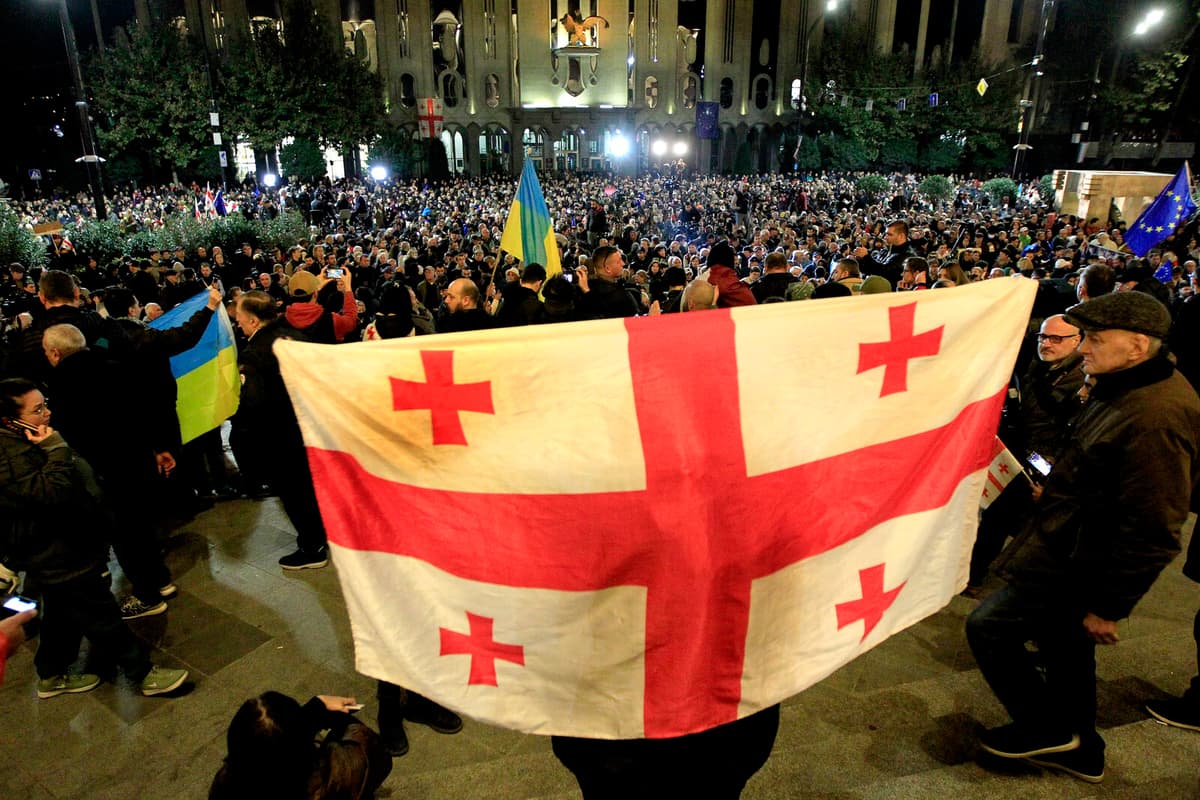The authority announces that a recount of votes will take place at some polling stations. Five polling stations in each constituency have been selected for votes cast there to be recounted, according to this announcement.
The official result states that the ruling party Georgian Dream, which has in several ways deviated from the country's constitutionally established path towards the EU, won the election with almost 54 percent of the votes.
Russian approach?
Georgian Dream has in recent years adopted a more conciliatory tone towards the large neighboring country Russia and introduced laws similar to Russian laws that restrict civil society and silence opposition voices. Russia has in practice occupied about one-fifth of Georgia since a six-day war in 2008.
In the capital Tbilisi, where support for Georgian Dream appears to be relatively low compared to parts of the countryside, thousands of people demonstrated on Monday evening on Rustaveli Avenue. In recent years, large-scale protests against the government have been met with increasingly harsh measures.
The country's EU-friendly President Salomé Zourabichvili, who in her more ceremonial role has gone against the ruling party, spoke to the crowd as it gathered in front of the Georgian parliament. She then said that the election had been marked by "sophisticated fraud", listed various ways in which this had occurred, and declared that Georgians had been subjected to a "Russian special operation".
Fraud suspected in rural areas
International observers early on highlighted question marks over the electoral process. Georgian observer groups claim to have gathered evidence of "complex and large-scale" electoral fraud – primarily in rural constituencies – and that around 15 percent of the votes should be annulled.
Reports of pressure and mapping of voters are emerging. Accusations are also being directed against the election authority.
Independent OC Media claims to have witnessed the fraud and publishes images allegedly showing a man from Georgian Dream escorting a voter to a booth, as well as another man stuffing a box full of ballots.
The Georgian opposition intends to boycott the newly elected parliament and demands that a new election be held, organized by an independent international party.
The Georgian government, led by the party Georgian Dream, introduced an so-called agent law in June despite widespread popular protests against it.
The law means that organizations receiving more than one-fifth of their funding from abroad must register with the authorities as organizations working on behalf of a foreign power. It raises questions about press freedom and aid from, among others, Sweden. The law text appears to have been modeled after a template used in Russia to restrict civil society and regime criticism.
Georgia has previously inscribed in its constitution that the country's governance should strive for EU membership. In December last year, the country received formal candidate status for membership – but when the agent law was passed, EU leaders announced that it effectively meant a halt to the membership process.
In connection with this, the EU summit also demanded that threats and violence against opposition members, journalists, and representatives of civil society cease.
The few opinion polls that have been conducted have shown that a large majority of Georgia's population wants to join the EU.






